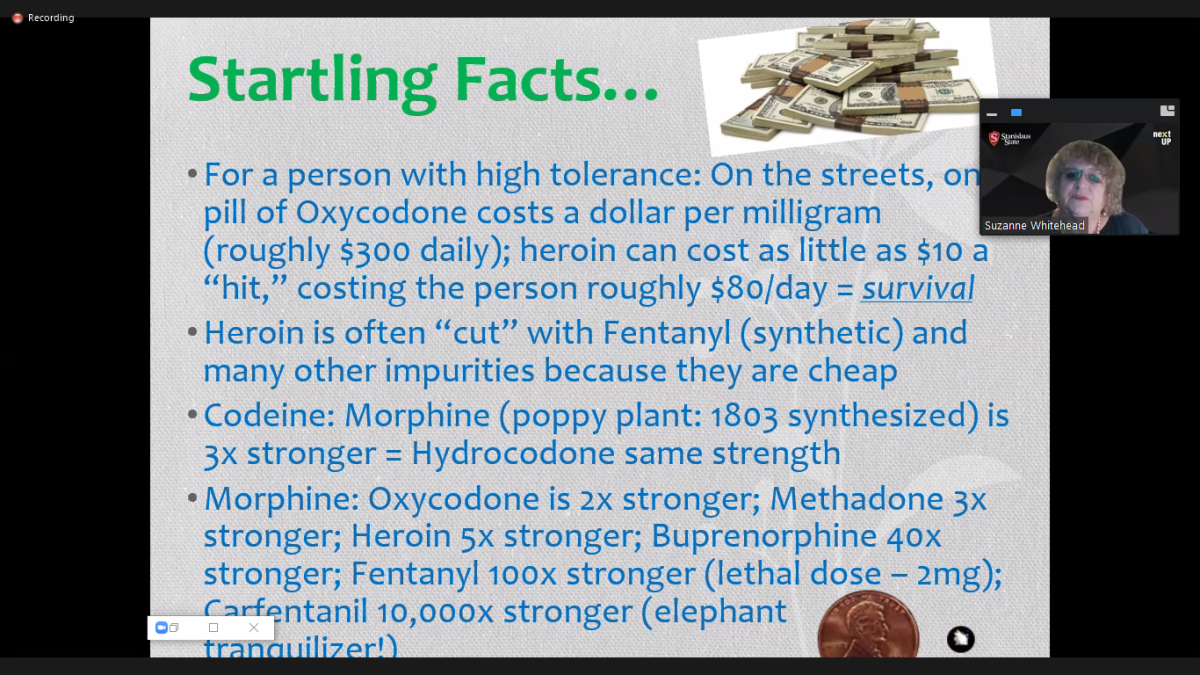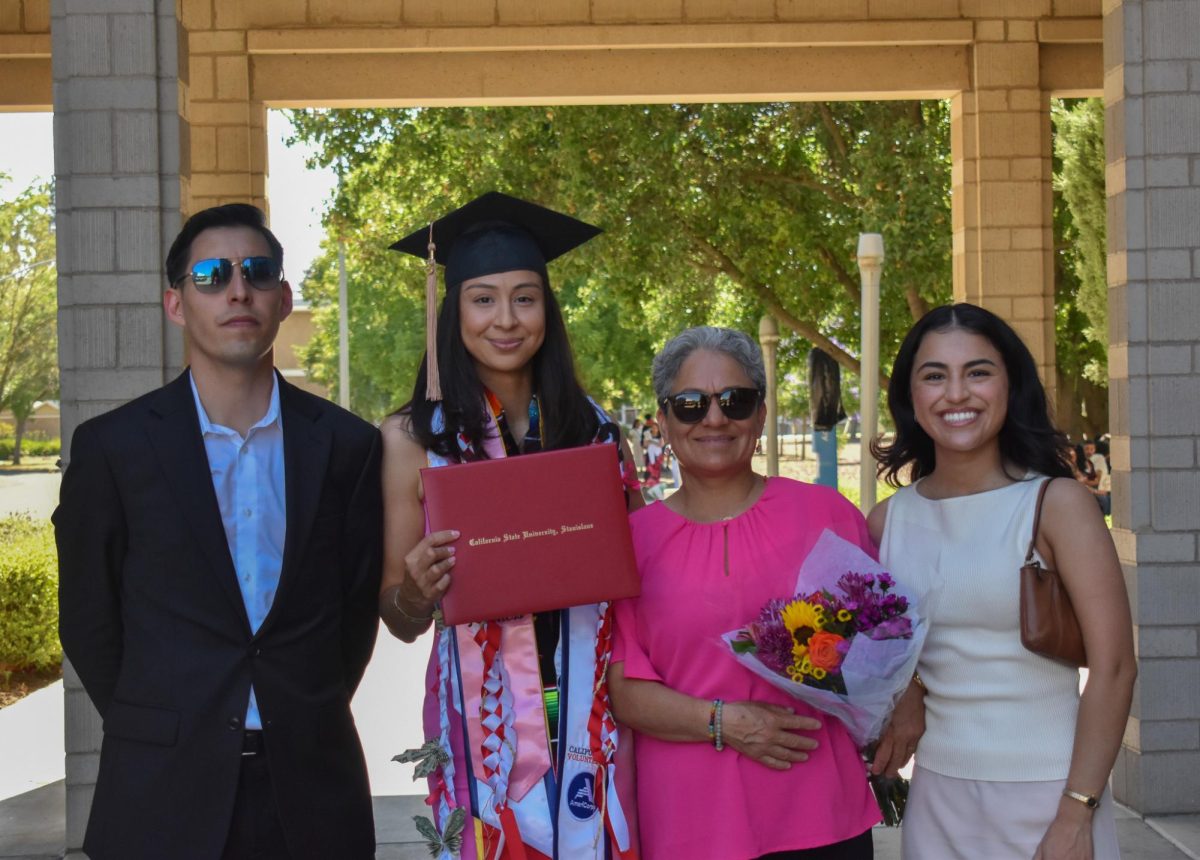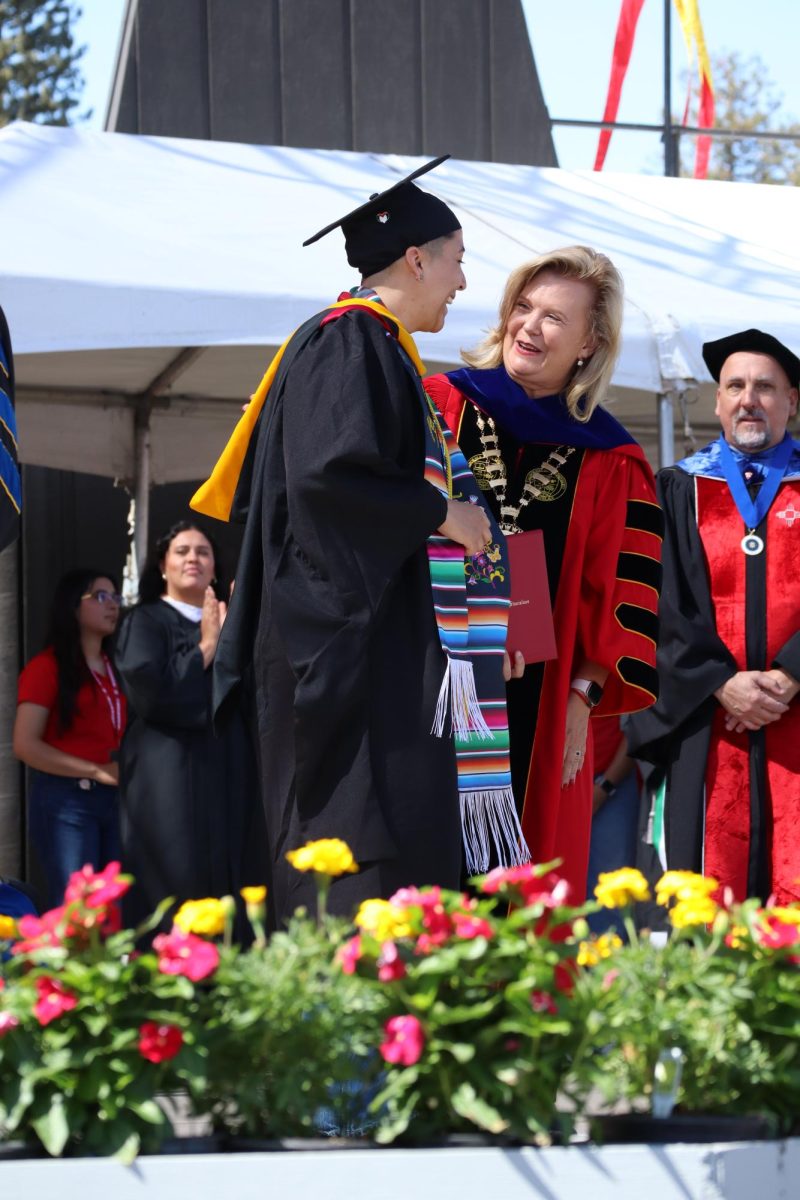On Friday, March 19th, 2021, CSU Stanislaus saw the inaugural presentation in the Next UP: Forward Thinking webinar. Centered around COVID-19, mental health, and addiction, this talk revealed information on the impact of COVID on the community is already impacted by addiction.
Presented by Dr. Suzanne Whitehead, Officer Quenna Martinez, and Dr. Shriaidhi Subramanium, they provided detailed information on Covid-19 and the Opioid Crisis. They also gave information on what the public and first responders can do to assist these conditions.
Dr. Whitehead started with a background on the Opioid Crisis, including how in 2020 alone “over 221 people died due to overdoses in the United States and mostly it was due to Fentanyl lacing.” She revealed that the over prescription of these drugs by physicians started the issues, and the loss of supply caused people to turn to the streets.
Following this, she revealed that a large aspect of the problems in regard to treating the disease in the time of the pandemic was stigma and access to treatment. COVID has moved treatment and support groups online, not only cutting access from many who need it, but also by making it even harder for them to keep up with it when going through withdrawals.
From there, the webinar was passed to Officer Quenna Martinez, who discussed the way first responders are meant to handle situations with sufferers of addiction with emphasis on those who overdose.
Officer Martinez spoke on the implementation of the use of Narcan to reduce the mortality rate, as it is a lifesaving tool to bring back those who are unresponsive due to withdrawal. Along with that she also provided access to one of the trainings on how to recognize an overdose and how to administer Narcan. She ended with stating that it “requires ongoing training of recognizing overdose, of recognizing what’s going on with someone and being a resource. Connecting to see what you can do to better assist.”
The last speaker of the webinar was Dr. Shriaidhi Subramanium, who discussed compassion as a treatment of addiction. In her segment she discussed how people with Substance Use Disorder (SUD) had increased susceptibility to COVID-19 with barriers to treatment to their own disease.
This section concluded with an explanation on Contingency Management Treatment (CM) and using motivational incentives to change behavior to encourage abstinence. This is recognized as one of the most effective psychosocial interventions.
These Next UP webinars are meant to continue following this inaugural event, and updates may be found at https://www.csustan.edu/ by searching Next Up.
Categories:
NextUp: Forward Thinking Covid19, Mental Health and Addiction Webinar
Essence Saunders
•
April 1, 2021
March 19, 2021 Screenshot of Dr. Whitehead and her slide on Opioid addiction facts. Screenshot by Signal reporter, Essence Saunders.
0
Donate to Signal
Your donation will support the student journalists of California State University, Stanislaus. Your contribution will allow us to purchase equipment and cover our annual website hosting costs.
More to Discover







